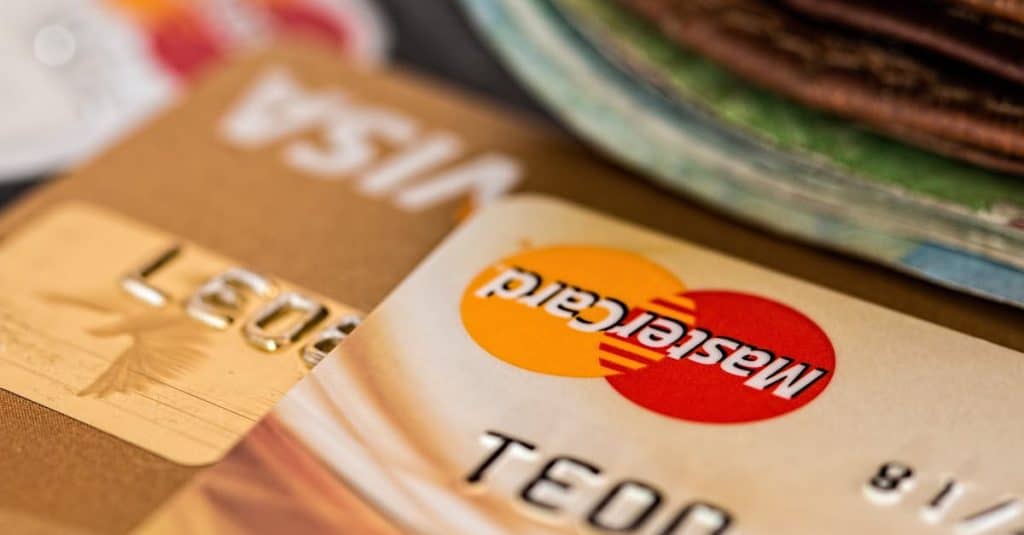In the vast world of cryptocurrencies, safety is a top concern. You’re probably wondering, is Coinbase Wallet really safe? How secure is it to store your hard-earned digital assets?
Coinbase Wallet, a popular choice among crypto enthusiasts, promises to provide a secure haven for your cryptocurrencies. But how well does it deliver on that promise? Let’s delve into the nitty-gritty and uncover the truth about Coinbase Wallet’s security.
Evaluating the Security of Coinbase Wallet
In this section, we dive deeper and evaluate the security measures of Coinbase Wallet.
What Is Coinbase Wallet?
To put it straightforwardly, Coinbase Wallet serves as a software application that lets individuals store, send, and receive a wide range of cryptocurrencies. It not only supports the commonly traded digital assets like Bitcoin and Ethereum but also accommodates lesser-known cryptocurrencies, proving to be versatile and comprehensive. Unlike Coinbase exchange, the Coinbase Wallet’s standout feature lies within complete user control over the private keys. This autonomy means that you’re in full charge of your digital assets, which isn’t the case with most cryptocurrency wallets.
Key Security Features
Dtermination of whether Coinbase Wallet is indeed safe consists of evaluating its key security features. Firstly, it enables user-controlled private keys which means you’re in sole possession of your crypto keys and hence your digital assets. These private keys are securely encrypted on your phone using Secure Enclave, a security feature inherent in iPhones considered to hold military-grade protection.
Secondly, the incorporation of biometric authentication, like Face ID and fingerprint scanning, adds an extra layer of defense. Any unauthorized access becomes more improbable, if not impossible, given that even if your mobile device gets lost or stolen, your digital assets remain inaccessible.
Thirdly, Coinbase Wallet does understand the importance of wallet backup. For this purpose, they provide a recovery phrase feature. This 12-word phrase lets you recover your assets even if your device gets lost or broken.
Benchmarking against industry standards in crypto security, Coinbase Wallet shows a robust commitment toward user fund protection. From device-level security to protocol-level security, the platform does not compromise on ensuring the safety of your crypto assets. It reinforces the notion that “Is Coinbase Wallet safe?” can indeed be answered in the affirmative.
Comparison With Other Cryptocurrency Wallets
Building on the details of the security measures employed by Coinbase Wallet, let’s delve into its standing amongst its competitors. Here, the focus will pivot to the comparison of Coinbase Wallet with other wallets that traffic in digital assets. This comparison will highlight the specifics of user experience, security features, and the overall ease-of-use with Coinbase Wallet and other popular wallets in the crypto-sphere.
How Does Coinbase Wallet Stack Up?
To assess the placement of Coinbase Wallet, we can start with its premise of a user-controlled wallet. This feature, shared with wallets like Trust Wallet and Metamask, gives you full control of your keys, enhancing the security of your digital assets.
Also worth mentioning is the support for multiple cryptocurrencies provided by Coinbase Wallet. This crosses paths with wallets like Exodus and Jaxx Liberty, known for multi-currency support. As for the security controls, it’s at a level comparable to wallets like Electrum and Guarda, boasting multi-layered safety measures such as optional biometric authentication and seed phrase recovery.
Regarding the interface, Coinbase Wallet is intuitive and user-friendly, much like Trust Wallet and Atomic Wallet, catering to both novice crypto-enthusiast and the seasoned ones. The integration of a DApp browser, seen in wallets like Trust Wallet and Metamask, adds versatility to Coinbase Wallet by allowing interactions with decentralised applications straight from the wallet.
Pros and Cons Versus Other Wallets
Placing side by side the favorable aspects Coinbase Wallet shares with other wallets, it stands out with its link to the Coinbase exchange. Unlike standalone wallets, you can transfer funds between your Coinbase Wallet and Coinbase.com account seamlessly.
However, despite these benefits, a sticking point that doesn’t go unnoticed is the lack of coin support compared to wallets like Coinomi and Atomic Wallet, which offer the capability to store thousands of coins and tokens.
Reducing the comparison to the mentioned context of “Coinbase vs Coinbase Wallet”, Coinbase Wallet undoubtedly shines for its capability to hold a broader variety of tokens, not available on Coinbase.com platform.
Coinbase Wallet holds a competitive edge despite some limitations. Whether that’s enough to crown Coinbase Wallet in the ecosystem of “crypto friendly banks” entirely depends on individual user’s prerequisites and crypto dealings.
User Experiences and Feedback
Analysis of User Reviews
Considering user reviews, it’s evident that Coinbase Wallet has attracted a chiefly positive response. Numerous users appreciate the wallet’s user-friendly interface and seamless transactions.
Indeed, ‘Coinbase vs Coinbase Wallet’ is a recurrent theme in user comparisons. Customers laud its seamless integration with Coinbase.com, resembling the synergy between Trust Wallet and Binance. They enjoy the ability to trade, store, and manage a large variety of tokens within a single app.
One notable review comes from a user who appreciates Coinbase Wallet’s compatibility. “The seamless integration between my Coinbase.com account and the Coinbase Wallet app is fantastic. I can easily switch from trading to storing with just a tap,” they praised.
In contrast, some users mention minor drawbacks, often comparing new Coinbase listings with other platforms. Feedback such as, “I wish they’d add [new coin] quicker. I saw it on [another app] days ago”, pops up occasionally.
Common Security Concerns Reported
When it comes to the question, ‘Is Coinbase Wallet safe?’, a comprehensive look into user feedback provides useful insights. Many users lean towards a positive affirmation of the question, citing Coinbase Wallet’s enhanced security features.
Of course, as with any financial platform, some concerns surface. Users occasionally report suspicious login attempts after making transactions. Others cite fears of possible vulnerabilities due to the online nature of the wallet.
A user stated, “My experience with Coinbase Wallet has generally been secure. The biometric authentication is a solid addition. However, I’m always a bit wary of online wallets since they’re prone to phishing attacks.”
Remember, though your digital assets are safeguarded well within Coinbase Wallet, it’s essential to stay vigilant. Always ensure the security of your devices and don’t share sensitive information.
Enhancing Your Security While Using Coinbase Wallet
Maintaining safety while using the Coinbase Wallet relies on both the security measures put in place by the platform and the user’s vigilance in upholding security best practices. Given the nature of cryptocurrency, keeping your digital assets secure highly necessitates your proactive actions.
Best Practices for Users
There are several practices you can incorporate to enhance your security when using Coinbase Wallet.
- Verify URLs and App Authenticity: Always ensure that you’ve downloaded the official Coinbase Wallet app from verified app stores. Avoid clicking unknown links or attachments that might redirect to malicious sites pretending to be Coinbase.
- Activate Biometric Authentication: Enabling biometric verification like fingerprint or Face ID adds an extra layer in safeguarding your wallet against unauthorized access. It’s a robust security feature provided by Coinbase Wallet and is worth deploying.
- Ownership of Private Keys: Be mindful of your private keys. Coinbase Wallet gives you control over your private keys, meaning you, and you alone, should have access to them.
- Password Strength and Storage: Opt for a strong password that’s not in use for any other online profile. Also, avoid jotting down your password or recovery phrases online or where it could easily be accessed.
- Practice Safe Internet Usage: Be cautious while using public networks or shared devices. They might expose your wallet to vulnerabilities.
- Beware of Phishing Attempts: Scammers might try to deceive you into providing your log-in details through misleading emails, messages, or sites. Coinbase never asks for your password or two-factor codes.
- Joy of Comparison: Explore the difference between “Coinbase vs Coinbase Wallet” to leverage the best features of each.
- Evaluating Safety: Confirm on forums and platforms, “Is Coinbase Wallet safe?” Understanding the general sentiment can offer you further insights to enhance your security measures.
Following these steps diligently will lessen the risk of compromise, helping you utilize the Coinbase Wallet safely while managing your cryptocurrency assets.
Conclusion
Having delved into the world of Coinbase Wallet, you’ve seen its strengths and potential vulnerabilities. You’ve learned that, while it boasts user-controlled private keys, biometric authentication, and recovery phrases, it’s not immune to risks. You’ve also noted the importance of implementing your own security measures to further protect your assets.
The user-friendly interface, multi-currency support, and seamless integration with Coinbase.com make it a compelling choice. However, it’s critical to remain vigilant, verify URLs, and be wary of phishing attempts.
Remember, the safety of your cryptocurrency assets doesn’t solely rest on the platform. It’s also in your hands. Keep your private keys safe, use strong passwords, and practice safe internet usage. By doing so, you’re not only using Coinbase Wallet, you’re mastering it. Your cryptocurrency journey is safer and more secure when you take proactive steps to safeguard your investments.
1. What security features does Coinbase Wallet offer?
Coinbase Wallet offers multiple security features like user-controlled private keys, which ensures only you have access to your cryptocurrencies. It also supports biometric authentication and recovery phrases for optimal security.
2. How does Coinbase Wallet compare to other wallets?
Compared to other wallets, Coinbase Wallet supports multiple cryptocurrencies and has integration with Coinbase.com. Users often appreciate its user-friendly interface and seamless transaction process.
3. Is Coinbase Wallet safe to use?
Yes, Coinbase Wallet has robust security measures in place. Users generally feel safe but express concerns about potential vulnerabilities and phishing attacks. Therefore, it’s essential to employ best practices, like biometric authentication activation, private keys safeguarding, strong passwords use, and safe internet usage to maintain security.
4. What are the common concerns about Coinbase Wallet?
The common concerns are potential vulnerabilities and phishing attacks. Coinbase Wallet users should always verify URLs and be cautious of phishing attempts to avoid these risks.
5. How can I make my Coinbase Wallet more secure?
You can make your Coinbase Wallet more secure by verifying URLs, activating biometric authentication, safeguarding private keys, using strong passwords, and practicing safe internet usage. It is also important to educate yourself about phishing attacks to mitigate possible risks.
6. What is the difference between Coinbase and Coinbase Wallet?
Coinbase is a cryptocurrency exchange, while Coinbase Wallet is a user-controlled cryptocurrency wallet. Coinbase Wallet enables users to manage their private keys directly and supports various cryptocurrencies. It’s important to compare their features and safety measures to make an informed decision.






